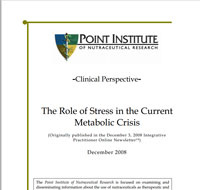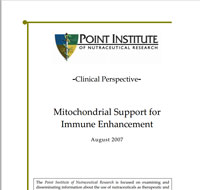- Bioavailability of Supplemental Dietary Nutrients: Challenges and Conundrums (July 2020). This whitepaper explores the broader issue of how the efficacy of delivering supplemental nutrients (vitamins, minerals, fatty acids, botanicals, etc.) can be influenced by their absorption and bioavailability (two distinct, but related phenomena). We explain why efficacy, rather than “biovailability” should be used to measure the therapeutic potential of any nutrient form (especially those that are modified to improve their bioavailability).
- Unlocking the Efficacy of Turmeric Root: Could the Absorption of Curcumin be the Wrong Key? This paper explores the conundrum between absorption, bioavailability and efficacy, as it pertains to the application of curcumin-related human clinical outcomes. Furthermore, we will discuss the evidence that suggests some of curcumin’s bioactivities may be achieved at low concentrations and that curcumin’s interaction with the human gut microbiome may be a key mechanism driving its bioactivity.
- Are Red Yeast Rice Supplements Safe and Effective Alternatives to Statin Therapy? This Whitepaper outlines our position on why RYR supplements as currently regulated, should not be recommended by healthcare professionals.
- Choosing the Best Marine-derived Omega 3 Products for Therapeutic Use: An Evaluation of the Evidence (Oct 2013) Reviews the evidence supporting fish oil as the standard marine-derived omega-3 fatty acid, with a discussion of the various product types, bioavailability, ethyl esters vs. triglycerides, quality control issues and recommendations.
- Fish Oil and Prostate Cancer Risk: Is There a Link? (Jul 2013) Explains the relationship between on fish oil and prostate cancer, with commentary on the data and complete findings of the recent study.
- The Use of Mushroom-Derived Dietary Supplements as Immuno-Modulating Agents (Feb 2013) Reviews the constituents of mushrooms and their mechanisms, with discussion of clinical trials and benefits.
- An Emerging Trend of High Dose Probiotic Use in Clinical Practice (Oct 2011) Discusses the use of high dose probiotics in IBS, IBD and antibiotic-associated diarrhea (AAD), with discussion of clinical trials, mechanisms and benefits.
- Target Serum Levels and Optimal Dosing of Vitamin D (March 2011)
conclusions of the last Institute of Medicine (IOM) report on vitamin D. Discusses lab values, target serum levels, and optimal dosing of vitamin D for the prevention of chronic disease. A short discussion of D2 vs. D3 and the role of vitamin K is also included. - Optimal Dietary Approaches to Reduce Cardiometabolic Risk (March 2011)
Reviews the data and makes an evidence-based recommendation for the optimal diet to reduce cardiometabolic risk. Discusses the epidemiological link between diet and cardiometabolic risk, select national dietary guidelines, and key popular diets, including the low carbohydrate diet and Mediterranean diet. - Saccharomyces boulardii in Gastrointestinal Related Disorders (December 2008)
Reviews the clinical evidence for use of the probiotic yeast Saccharomyces boulardii in various GI disorders, including antibiotic associated diarrhea, C. difficile, and IBD. - Differentiating the Therapeutic uses of EPA and DHA in clinical practice (October 2008)
Discusses the evidence for different therapeutic potentials for EPA and DHA within the clinical setting. A review of cardiovascular benefits, inflammation, mood disorders, eye disorders, cognitive disorders and childhood brain development is included. - Time-Release Lipoic Acid: More Marketing than Data (July 2007)
by point critique of the concept of time-release lipoic acid. Includes discussion of the benefits of lipoic acid and comments on R-lipoic acid. - Allergies to Sulfur Compounds? The Confusion between Sulfates, Sulfites, and Sulfa Drugs (June 2006)
Explains the difference between sulfates, sulfites and sulfa drugs, and dispels the notion of allergy to sulfates or sulfur in general. - Cruciferous Indole Derivatives as Dietary Supplements – Confusion between I3C and DIM (April 2006)
Explores the data concerning cruciferous indoles as foods and dietary supplements. Includes a point by point review of assumptions and highlights the source of the sources of the confusion.
Clinical Perspectives
-
The Role of Stress in the Current Metabolic Crisis (December 2008)
Discusses the role of stress in metabolic disorders. Explores the role of dietary glycemic impact, insulin sensitivity, cortisol/DHEA levels, and sleep in modulating the damaging effects of stress. -
Mitochondrial Support for Immune Enhancement (August 2007)
A paper on the philosophy of Dr. Jon Kaiser of the Department of Medicine at the University of California at San Francisco Medical School on why micronutrient therapy supports the immune system in patients with AIDS, chronic fatigue syndrome or cancer, as well as others with less severe immune dysfunctions.


